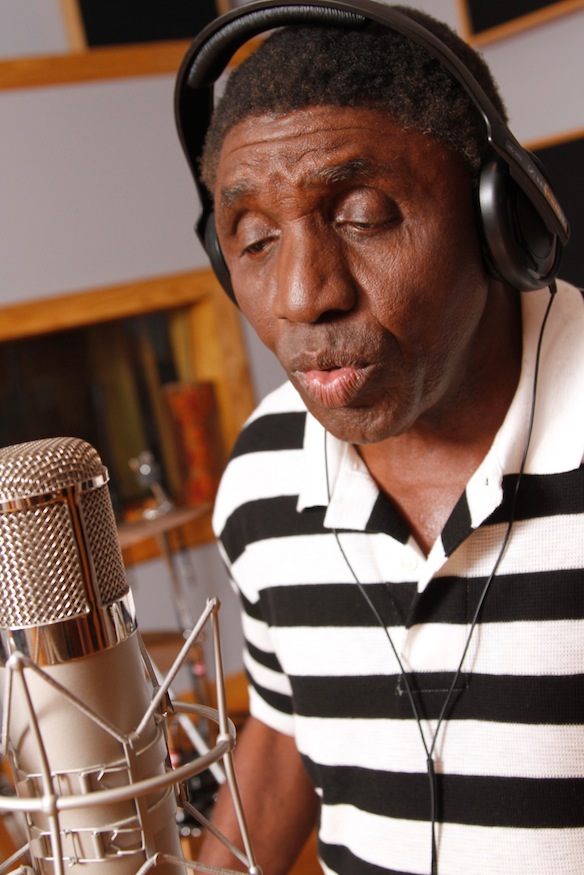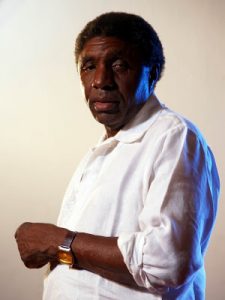
Bongos Ikwue some years before now
At 75 today, with a name, a voice, musical successors in the family, the health and the energy as well as an ambitious musical project ahead and, therefore, a totality that has lodged him in the vortex of communal identity, at the heart of ‘banal nationalism’ and the discourse of global peace and security, Bongos Ikwue is, indeed, a variant of the idea of the artist (original: poet) as an unacknowledged legislator of the world. That is a legislator not in the sense of a law maker or rule making but in the consequences of his words or the power of voice, the voice expressed in music, the message they convey and how such messages constitute us through induction.It is that creative cultural mapping which implicates popular culture – music, film, media, etc in geopolitics, albeit popular geopolitics because culture workers almost always end up constructing their own nation positively and other nations negatively through representational practices. As cosmopolitan as Ikwue, the reader would still see in the course of this report, Bongos Ikwue the artist also becoming Bongos Ikwue the actor in popular geopolitics.
75 almost didn’t come for Bongos. God used some people to say that it is not his time to go yet. So, he found his way to the United States. It was doubtful if anywhere in the world could astonish Bongos whose senior brother had already trained in Germany as a fighter pilot, becoming Nigeria’s Chief of Air Staff in the late 1960s and who himself was already an Electrical Engineering undergraduate by 1967 at the Ahmadu Bello University, Zaria. Still, his worldliness was shaken by the sophistication of the American medical service delivery system that he experienced. This is not what he said. This is the reporter’s inference. After nearly half a year in the US, he is back, hale and hearty. The bash or thanksgiving service for that is coming up soon. Although Onyakeke, aka KK, his first daughter told Intervention it would reflect the austerity of the times, it is nevertheless understood it might turn out the occasion Idoma elders and members of the Benue senior citizens have been waiting for to make a communal statement on Bongos, its chief narrator ever. That would be at Otukpo while today’s birthday won’t be anything beyond a quiet family dinner.
Although he still has the physiotherapy segment to complete, his gaze is already set on the ambitious musical project he has been working on. He is good to fly immediately as soon as someone or some institution, government or agency comes along and they reach agreement on how much such a person or government is going to invest and how he or she or they gets their money back. It is purely on business terms, he told Intervention at the interview during which the reporter was privileged to listen to all the tracks involved, including the jazz version of the sensational “Nigeria Has Come to Stay”.
In the age of restructuring campaign and spewing of messages of hate, Bongos thinks the six tracks that constitute the album are the proper moralistic products that should undermine or square up with the overdose of immorality entertainment going on. “I have taken time, for years, to put all these together. All the songs are about unity and peace of the world”, he said. It is also, for him, about Africa going to the next level, putting certain animation stories from the continent which he thinks it is time for the world to hear. He told a particular animation story whose graphic capture of the elusive concept of power makes it the ultimate summon to humility in the life of a human being. Bongos himself calls it a funny but mature story. The world would get to hear this and many of such from him very soon.
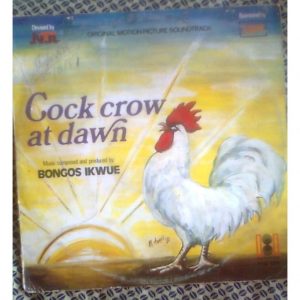
The starting point somehow
Meanwhile, each of the six tracks in the package he is seeking investors immediately are basically about Nigeria although one of them has more to say on war and world order. He is still not satisfied with the technical production but the lyrics are all done with. It is the recording he wants to take higher. “I want to do a very serious video version of it all. You will be amazed if I find the money to do the video version”, he says, adding how good they are even as they are now but how better they can become. He reveals how what he has now were all done in his studio in Otukpo. There is a popular geopolitics credo serving as the fire dragging the project: if we have such wonderfully funny but mature stories, why is ‘Tom and Jerry’ still the staple for the children?. Not his words but something like that!
The tracks are “Nigeria Has Come to Stay”; “Your God is My God”; “One United Nigeria”; “Mustapha and Christopher”, “Wake Up” and “Nigeria Has Come to Stay”, (jazz). The titles look consensual. Don’t be deceived. They contain the philosophical bite. Bongos is beyond ideological critique in any of these tracks even as he sunk his teeth into the system in very sarcastic missiles. He said he used the format of the National Anthem to compose “Nigeria Has Come to Stay” and the song rhymes all the way from the beginning to the end. This reporter obtained his permission to quote lines out of each.
“Nigeria Has Come to Stay. There is nothing more to say. Oh Yeah, Oh Yeah”. Those are the opening lines before Bongos’s creative spirit overwhelmed him into a sort of a chorus that sounds like speaking in tongues Nigeriana: Raba raba raba rabankoo! Rabankoo!! Rabankoo!!!”. It is just creativity. Until it is invested with meaning, it means nothing. He just wanted to get away from being entangled with any ethnic group or region or religion into something like an everybody’s language. As he raba-rabas his way in the lyrics, he calls major Nigerian cities – Abuja, Otu-Oke, Abeokuta, Kaduna, Onitsha, Ekiti, Enugu, Gboko, Daura, Calabar, Jalingo, Ughelli, Yenagoa, Kano, Issele-Ukwu, Lokoja, Zaria, Ilorin, Igbere, Benin, Jos, Aba, Minna, Auchi and so on. Ibadan and Otukpo came last. So, why did Otukpo come last, I asked him. “I don’t know. I shouldn’t start with my own town but I should fail to mention it”, he answers.
If “Nigeria Has Come to Stay” beats them all in ‘banal nationalism’, “My God is your God” is the one that has the shocker. It opens like this: “If your God made the moon, Sun and stars; And if my God made the moon, Sun and the stars; If your God made the universe, And if my God made the universe. Then, Your God is my God and my God is your God”, with the last line serving as the chorus. The message is the pointlessness of religious violence, leading to many children orphaned, many women widowed and many cities destroyed by wars as captured in subsequent stanza or whatever they call a stanza in musical lyrics. At this level, Bongos has moved from the national to the global level. He has a ground norm about and against wars. It goes like this: the only war you ever win is the war you did not get to fight. Here, he transforms into a protestant against the grand narrative of winner as against loser. In a war, everyone is a loser. What may be counted as victory here is a loss there and vice-versa. So, he is telling the world that it is time to put an end to all wars because trying to be smart about was is useless. That makes him a repository of the elemental considerations by which a more humane world becomes possible through the constitutive force of discourse, of advocacy for a higher order.
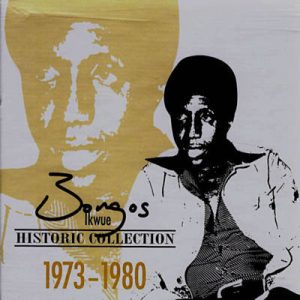 And he would follow it up by connecting to the definition of civilisation as nothing but about the other person: when you stop at the traffic light, it is all about allowing the other person to pass. You do not do many things so that the other person can be”, he says. To that he adds the article of faith which forbids suspicion. In other words, Bongos never suspects anybody. He seems to be of the belief that once you suspect anyone or anything, everything that comes to your mind becomes a good proof of what or who you suspect. So, he outlawed it. And he tells you a few stories that taught him that it is no use being suspicious. Is it possible that is why, at 75, he is just about to start life? In the interview to be published tomorrow as a sequel to this, his daughter says her dad goes extra mile to treat people fine. Fortunately and unfortunately, he has infected them all, with some carrying goodness to others to an even higher plane already.
And he would follow it up by connecting to the definition of civilisation as nothing but about the other person: when you stop at the traffic light, it is all about allowing the other person to pass. You do not do many things so that the other person can be”, he says. To that he adds the article of faith which forbids suspicion. In other words, Bongos never suspects anybody. He seems to be of the belief that once you suspect anyone or anything, everything that comes to your mind becomes a good proof of what or who you suspect. So, he outlawed it. And he tells you a few stories that taught him that it is no use being suspicious. Is it possible that is why, at 75, he is just about to start life? In the interview to be published tomorrow as a sequel to this, his daughter says her dad goes extra mile to treat people fine. Fortunately and unfortunately, he has infected them all, with some carrying goodness to others to an even higher plane already.
“Mustapha and Christopher” is the track that would capture the youths because it raps against the artificial restrictions imposed by orthodoxy: “I know a Hausa Yaro loves an Ibo Nwugo, I know a Yoruba Bola loves a Tiv Kwase. But due to mother’s teachings and religious differences, The Yaro and and the Nwugo, Bola and Kwase, Mustapha and Christopher couldn’t live together. No, no, no”
So, the discursivity, the sensibility and the totality in these six tracks corroborate Bongos’s claim that it is a project that is bigger than him as an individual because, in his estimation, it automatically becomes part of the agenda of de-radicalisation, part of the fight against terrorism. It is suitable for all kinds of audiences, especially if translated into Hausa, Yoruba, Igbo, French, Swahili, Hebrew among others. But it will require a lot of money. As such and as a result of the time he took off to get medical attention in the US, it would no longer be possible for him to make it a birthday present to Nigeria. But the struggle continues and victory is certain. After all, he is the one who sang “Never Say Never Again”
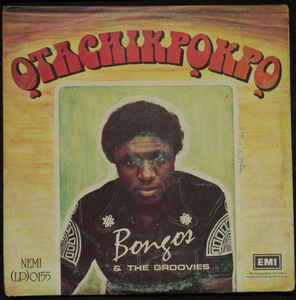 Beyond this project, ‘Otachikpokpo’, among others, is coming on video. Nobody can estimate how explosive an impact of ‘Otachikpokpo’ on video would have on Idomaland. It could be explosive but in a positive sense. It is better imagined than mentioned the sensation in enacting the drumbeat in that outing. It wouldn’t be Idomaland alone as music speaks a universal language but the cultural idiom it embodies brings in the specificity factor. That looks like Bongos’ greatest hit in both his outings in English and Idoma.
Beyond this project, ‘Otachikpokpo’, among others, is coming on video. Nobody can estimate how explosive an impact of ‘Otachikpokpo’ on video would have on Idomaland. It could be explosive but in a positive sense. It is better imagined than mentioned the sensation in enacting the drumbeat in that outing. It wouldn’t be Idomaland alone as music speaks a universal language but the cultural idiom it embodies brings in the specificity factor. That looks like Bongos’ greatest hit in both his outings in English and Idoma.
But don’t ask him which of his outputs he would rate as such. And don’t ask KK either. KK agrees that her father’s musical output in Idoma language moves listeners somewhere else, including those who do not understand the language. When this reporter asked Bongos at an interview recorded differently, he said it was difficult to say, and falls back on what a French writer had told a journalist who asked him that sort of question: my best poem is the one I have not written yet. Bongos says that what the public likes or what sells very well and brings money is not necessarily the best. So, he takes the position of not creating a bias. The late Chinua Achebe would compare such a question to asking him which of his children he loved most. Only a foolish father would ever say such openly although that was exactly what Okonkwo, the character Achebe created or the hero of “Things Fall Apart” did. He wished his daughter were the first his son who was turning up as one of the early Christian converts in Umofia to his chagrin, no matter how Obierika, Okonkwo’s much more reflective friend advised him. But Achebe would mention which one of his novels he is likely to be caught reading again.
“Otachikpokpo” has some mystery, even for Bongos himself. Otachikpokpo is Idoma word for Wood Pecker and the ‘kpo!, kpo!! kpo!!!’ we hear in that track is Bongos’ representation of the way it hits its beak to burrow a hole into the wood. Why it does that is what we may turn to Biologists to understand. But the mystery there is what some parts of the lyrics mean. What, for example, does “ande gewa” mean? What does “Igbabu chua lele” mean and so on. Bongos’ guess is that in most Idoma ancestral chants, there is plenty of Igala and Igbira. That brings in the Kwararafa thing into it all. He says that the song was there before he was born and he found and sang it like that. But he added the interlude of drumbeat that makes it the hit.
 It is that ability to move around the Triple Heritage that the late Professor Ali Mazrui talked about in the African experience that gives Bongos’ creativity the universalism and timelessness about it. That is his effortless infusion of the Western, Islamic and the traditional African world outlooks. When he talks about ‘what’s gonna be is gonna be, there is nothing to do about it’, he is referencing Albert Einstein which is Western. When he wrote in one of the coming tracks “Look for money as if you‘ll never die, worship God as if you‘ll die tomorrow, he is taking something from the Quran. Then when he crafts “Otachikpokpo” or “Ella Agunaga” or Ouno”, he is reaching Kwararafa ancestry through its reification in the Idoma identity or what exists as such.
It is that ability to move around the Triple Heritage that the late Professor Ali Mazrui talked about in the African experience that gives Bongos’ creativity the universalism and timelessness about it. That is his effortless infusion of the Western, Islamic and the traditional African world outlooks. When he talks about ‘what’s gonna be is gonna be, there is nothing to do about it’, he is referencing Albert Einstein which is Western. When he wrote in one of the coming tracks “Look for money as if you‘ll never die, worship God as if you‘ll die tomorrow, he is taking something from the Quran. Then when he crafts “Otachikpokpo” or “Ella Agunaga” or Ouno”, he is reaching Kwararafa ancestry through its reification in the Idoma identity or what exists as such.
To think that many Idoma young men of Bongos’ generation followed this track is the puzzle. The list would stretch from Joe Omakwu, the lawyer who sang the everlasting ‘Ache-nche’ that shaped the purist imagination of love in entire Idomaland. He is followed by Morgan Ogbole, also a lawyer, then Bongos Ikwue who battled between Electrical Engineering and a musical career and up being all. The late Justice AP Anyebe would fit in here although his artistic talent was in literature. Later, he was joined by the Audu Ogbes and the late Ada Ugah who became a professor of Comparative Literature at the age of 37. And all of them tried to encase the Idoma story in its global and national hybridity. In this regard, two remain outstanding.
One is Justice Anyebe’s story of Ogbuloko War against the British in what is today the railway Districts in Idomaland-Utonkon, Igumale, Ulayi, Ijigban and Agila. The other must be the connection between, on the one hand, the story of “Ella Agunaga” which is one of Bongos’ tracks in Idoma language and Bongos’ story of the question a mad man asked a car owner sometimes back in Otukpo and, on the other hand, Michel Foucault’s idea of how madness is a product of discourse. That is something to be explored another day. But, to the extent that Foucault is the dominant global scholar of today in the same way that Marx was a few decades ago, that should compel us to think of the sustainability of the essentialist claim of Idomaland being very fertile for the imaginative spirit. Meanwhile, may we click glasses to Bongos Ikwue’s health and prosperity on his 75th birthday!

